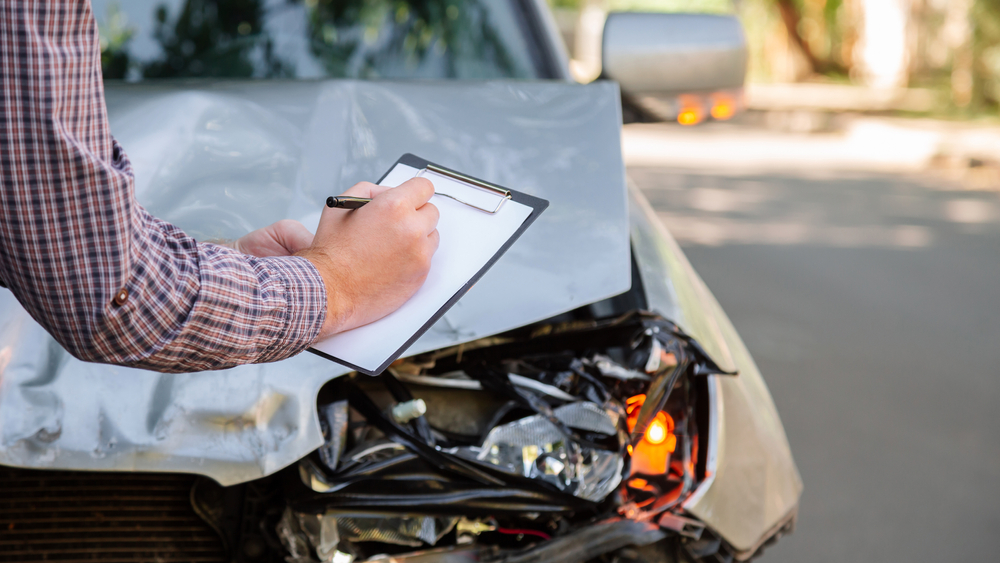Reporting a car accident to your insurance company is a critical step to securing your claim. Each insurance policy comes with specific requirements, including time limits for notifying your provider. Some policies require immediate reporting, while others offer a more flexible time frame. In this post, you’ll find details on what’s typically expected across different insurers and how quickly you should act to avoid any issues with your claim.
Learn how long you have to report a car accident to your insurance company with guidance from Armada Law. Call us today to speak to a skilled personal injury lawyer.
Timeframe for Reporting a Car Accident to Your Insurance
Reporting a car accident to your insurance company is time-sensitive, and each policy outlines specific deadlines for filing a claim. While insurance policies have specific details, state laws and individual company rules also influence when you must report an accident.
Typical Time Frames for Reporting an Accident
Most insurance companies expect you to report a car accident as soon as possible. A common timeframe is within 24 to 48 hours. Acting quickly provides your insurer with detailed information while it’s still fresh in your memory. It also ensures that any investigation, if needed, can happen promptly.
Delaying your report increases the risk of complications. Even if your policy doesn’t specify a hard reporting deadline, prompt reporting avoids disputes and improves the chances of a smooth claims process. Some policies may give you more time, but it’s wise to file your claim immediately after the incident.
State-Specific Requirements
Each state imposes its own rules on accident reporting. Some states require reporting accidents involving injuries, fatalities, or significant property damage directly to law enforcement. In these cases, you may need to file a police report and provide it to your insurer. For instance, South Carolina mandates reporting accidents that result in injuries or property damage above $1,000.00.
Other states have varying thresholds for reporting accidents to the Department of Motor Vehicles or the police. These rules directly impact the information your insurer will need, so knowing your state’s laws helps you stay compliant.
Policy-Specific Deadlines
Insurance companies outline clear deadlines for reporting accidents in their policies. While most policies recommend immediate reporting, some allow a few days or even a couple of weeks, depending on the situation. Failing to meet your policy’s deadline might result in reduced compensation or a denied claim altogether.
To avoid issues, read your insurance policy carefully and note any specific time limits. Contact your insurer right after an accident to understand the steps required and confirm that your claim stays within the policy guidelines.
In essence, reporting a car accident promptly ensures that you meet both state regulations and policy requirements. Act quickly after an accident to protect your rights, simplify your claims process, and avoid potential pitfalls that could affect your coverage.
Steps to Take Immediately After an Accident
After a car accident, responding quickly and effectively is essential for your safety and to protect your insurance claim. Following the correct steps ensures the situation is managed with care.
Ensure Safety and Contact Emergency Services
Your immediate focus should be on safety. Check for accident injuries and make sure no one is in immediate danger. If someone is hurt, contact emergency services right away. Even in minor accidents, it’s important to notify the authorities to create an official accident report. This report is critical for insurance purposes and helps verify the facts. Move vehicles to the side of the road if it’s safe to do so and turn on your hazard lights to warn other drivers.
Document the Accident Scene
Proper documentation of the accident scene plays a vital role in supporting your claim. Visual evidence is crucial to show the extent of the damage and any factors contributing to the accident.
Here’s a list of steps to document the scene thoroughly:
- Take photos: Capture all vehicles, damages, and relevant surroundings.
- Record conditions: Note weather, road, and traffic signal conditions.
- Document damages: Ensure you photograph all visible injuries and vehicle damage.
Having detailed documentation creates a strong foundation for your claim and reduces the chance of disputes later. Also, understanding the common causes of car accidents can help clarify the circumstances surrounding your incident. These may include road conditions, weather, or driver error.
Gathering witness information
Witnesses are valuable in providing unbiased accounts of the accident. Approach anyone who saw what happened and ask for their contact information, such as names, phone numbers, and addresses. If possible, ask them to share what they observed. Having witnesses on record provides additional support for your version of events and strengthens your claim.
Contacting Your Insurance Company
Promptly informing your insurance company about an accident is critical for ensuring your claim is processed efficiently. The process begins with providing the necessary information and moves through various stages, including an assessment of damage and liability.
Information to Provide When Reporting an Accident
Accuracy matters when reporting an accident to your insurance company. Supplying clear and detailed information allows them to start the claims process without unnecessary delays. You should provide:
- Date and time of the accident
- Location of the incident
- Details of all vehicles involved
- Contact information of other drivers and witnesses
- Police report number (if available)
These details enable the insurance company to investigate your case effectively and avoid prolonged inquiries.
What to Expect During the Claims Process
After receiving your report, your insurance company assigns an adjuster to handle your claim. The adjuster investigates the accident, determines fault, and estimates the cost of repairs or medical expenses. They may ask you to submit additional documents, such as medical records or repair estimates, to support your claim.
The timeline for resolution can vary depending on the complexity of the accident and how quickly evidence is gathered. Typically, the process involves a review of police reports, witness statements, and other relevant documentation before any compensation is determined. While some claims are resolved in days, others might take weeks.
Potential Consequences of Delayed Reporting
Delays in reporting an accident to your insurance company can lead to significant consequences. Most insurance policies require accidents to be reported within 24 to 48 hours. Failing to meet this deadline might result in your claim being denied, leaving you responsible for the costs of repairs or medical bills.
In addition to denial of coverage, delays can also weaken your credibility. Insurance companies rely on timely reports to gather accurate details and assess the situation. If too much time passes, important evidence may be lost, and your chances of a successful claim may diminish. Providing all necessary information from the start increases the likelihood of a favorable resolution, preventing any unnecessary complications.
Navigating Insurance Adjustments and Repairs
Once you’ve reported your accident and provided the necessary information to your insurance company, you’ll likely work with an insurance adjuster to handle the claims process. Insurance adjusters are responsible for investigating accidents and determining the amount of compensation that should be paid to the policyholder. They will review the information you provided, inspect the damage to your vehicle, and assess the value of the repairs.
Adjusters use a variety of tools and techniques to evaluate the damage to your vehicle. These may include using a computerized estimating system or consulting with auto repair experts.
Options for Vehicle Repairs and Rental Cars
- Repairing your vehicle: If the damage to your vehicle is minor, you may be able to have it repaired at a local auto shop. Your insurance company will typically provide you with a list of approved repair facilities.
- Replacing your vehicle: If the damage to your vehicle is extensive or the cost of repairs exceeds the vehicle’s value, your insurance company may offer to replace it. The value of your vehicle will be determined based on its age, mileage, condition, and market value.
- Rental car coverage: Many insurance policies include rental car coverage, which can help you cover the cost of renting a car while your vehicle is being repaired or replaced. However, rental car coverage may have limitations, such as a maximum rental period or a daily or mileage limit.
Communicating with Your Insurer During the Claims Process
It’s important to communicate effectively with your insurance company throughout the claims process. Be sure to provide any requested documentation promptly and answer any questions the adjuster may have. If you’re not satisfied with the insurance company’s response, you may need to escalate the matter to a supervisor or file a complaint with your state’s insurance department.
Additionally, keep a record of all your communications with your insurance company. Finally, consult with a car accident attorney to help you navigate the claims process. An attorney can provide legal advice on how to report a car accident to insurance, represent you, and negotiate a higher settlement on your behalf.
Were you injured in a South Carolina car accident? Let Armada Law fight for the compensation you deserve. Call us today!



